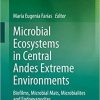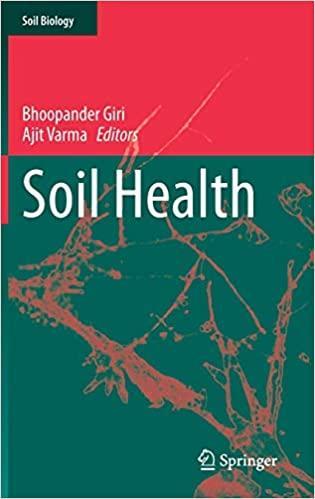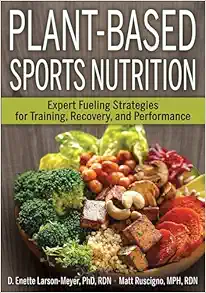Soil Health (Soil Biology, 59) 1st ed. 2020 Edition
27 $
Delivery time: Maximum to 1 hours
Soil Health (Soil Biology, 59) 1st ed. 2020 Edition
This book gathers the latest insights into soil health and its sustainability, providing an up-to-date overview of the various aspects of soil quality and fertility management, e.g., plant-microbe interactions to maintain soil health; and the use of algal, fungal and bacterial fertilizers and earthworms for sustainable soil health and agricultural production.
It first discusses the past, present, and future scenarios of soil health, and then explores factors influencing soil health, as well as the consequences of degradation of soil health for sustainable agriculture. Lastly it highlights solutions to improve and maintain soil health so as to achieve greater productivity and sustainability without damaging the soil system or the environment.
Soil health is defined as the capacity of a soil to function within ecosystem frontiers, to sustain biological productivity, to maintain environmental quality and to promote plant, animal and human health. Soil health is established through the interactions of physical, chemical and biological properties, e.g., soil texture, soil structure, and soil organisms. Healthy soil provides adequate levels of macro- and micronutrients to plants and contains sufficient populations of soil microorganisms. As a result of the increasingly intensified agriculture over the past few decades, soils are now showing symptoms of exhaustion and stagnating or declining crop yields. Exploring these developments as well as possible solutions based on holistic and sustainable approaches, this book is a valuable resource for researchers in the area of soil and environmental science, agronomy, agriculture, as well as students in the field of botany, ecology and microbiology.
Product Details
Product Details
- Publisher : Springer; 1st ed. 2020 edition (May 27, 2020)
- Language : English
- Digital eBook : 415 pages
Related Products
Basic Medical Book
Electrocardiography of Channelopathies: A Primer for the Clinical Cardiologist (PDF)
Basic Medical Book
Creative Thinking And Arts-Based Learning: Preschool Through Fourth Grade, 7th Edition (PDF)
Basic Medical Book
Basic Medical Book
Basic Medical Book
Basic Medical Book
Secrets Of Successful Program Design: A How-To Guide For Busy Fitness Professionals (PDF)
Basic Medical Book
Basic Medical Book
Basic Medical Book
Strength Zone Training: The Most Effective Method For Maximizing Muscle Development (PDF)
Basic Medical Book
Basic Medical Book
Basic Medical Book
Basic Medical Book
Velocity-Based Training: How To Apply Science, Technology, And Data To Maximize Performance (PDF)
Basic Medical Book
All-Pro Performance Training: An Insider’s Guide To Preparing For The Football Combine (PDF)
Basic Medical Book
The Language Of Coaching: The Art & Science Of Teaching Movement (PDF)
Basic Medical Book
Basic Medical Book
2023 & 2024 NIRSA Flag & Touch Football Rules Book & Officials’ Manual, 21st Edition (PDF)
Basic Medical Book
Achieving Excellence: Mastering Mindset For Peak Performance In Sport And Life (PDF)
Basic Medical Book
Neurodegenerative Diseases: Translational Models, Mechanisms, And Therapeutics (PDF)
Basic Medical Book
Breathe, Focus, Excel: Exercises, Techniques, And Strategies For Optimal Athletic Performance (PDF)
Basic Medical Book
Developing Speed (EPUB)- NSCA – National Strength & Conditioning Association, 2nd Edition
Basic Medical Book
Developing Speed – NSCA -National Strength & Conditioning Association, 2nd Edition (PDF)
Basic Medical Book
Personal Best Running: Coach Coogan’s Strategies For The Mile To The Marathon (PDF)
Basic Medical Book
Run Healthy: The Runner’s Guide To Injury Prevention And Treatment (PDF)
Basic Medical Book
Smarter Recovery: A Practical Guide To Maximizing Training Results (PDF)
Basic Medical Book
Basic Medical Book
Adapted Aquatics Programming: A Professional Guide, 2nd Edition (PDF)
Basic Medical Book
Genetics Primer For Exercise Science And Health (Primers In Exercise Science) (EPUB)
Basic Medical Book
Aquatech: Best Practices For Pool And Aquatic Facility Operators (PDF)
Basic Medical Book
Becoming A Sustainable Runner: A Guide To Running For Life, Community, And Planet (PDF)
Basic Medical Book
Breathe, Focus, Excel: Exercises, Techniques, And Strategies For Optimal Athletic Performance (EPUB)
Basic Medical Book
Basic Medical Book
Active Games For Children On The Autism Spectrum: Physical Literacy For Life (PDF)







































































































